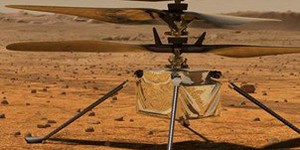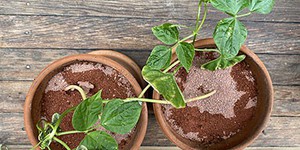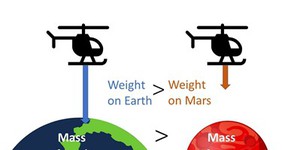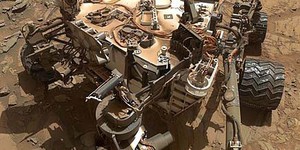All Resources (top 2,000 results)
|
Select a resource
Sort by
|
Ask an Expert Topic
Forum: Grades 6-8: Physical Science
Mars Colony
Mars Colony
To Science Buddies
I am doing a research project on a colony on Mars. I would be very grateful if you (with your expert opinion) could answer these questions.
- What are some of the problems with Mars colonisation?
- Why do you think people want to colonise Mars?
- What would a day in the life of a Mars colonist look like?
- What is Mars dust and is it harmful?
Thank you for taking the time to answer these questions.
Daniel Jones (Trinity Grammar Junior…
Read more
Ask an Expert Topic
Forum: Grades 6-8: Physical Science
Terra forming mars
Terra forming mars
Hi,
I am doing a project to terraform Mars. I'm trying to find out how to put oxygen on the planet, but my problem is the atmosphere is to thin so the oxygen would just float off in to space. Any advice? Thanks! Aloka
Re: Terra forming mars
I hope it isn't to late to answer your question, but I'd like to give you an answer anyway.
To start of, oxygen wouldn't really [i]float away[/i]. But really would get obliterate by cosmic radiation…
Read more
Ask an Expert Topic
Forum: Grades 9-12: Life, Earth, and Social Sciences
Ammonium Perchlorate on Mars
Ammonium Perchlorate on Mars
My science fair project consists of using a Dissimilatory Perchlorate Respiring Bacteria, specifically Dechloromonas Aromitica strain RCB, to reduce ammonium perchlorate on the surface of Mars. Perchlorates are toxic to humans and cover every inch of the surface of Mars. The Mars One project is suppose to send two astronauts to Mars in the next decade. Although astronauts wear special protective suits, perchlorates still pose a hazard…
Read more
Ask an Expert Topic
Forum: Grades 9-12: Life, Earth, and Social Sciences
Life on Mars Experiment
Life on Mars Experiment
I read in Popular Science about an experiment in Berlin, conducted by the DLR (German Center for Aeronautics and Space Research). In the experiment, the species Deinococcus radiodurans, Xanthoria elegans, and Bacillus subtilis, were subjected to Martian-like conditions for an extended period of time. There is more information about it at http://www.popsci.com/science/article/2009-10/martian-torture-chamber.
I have searched the DLR's website and…
Read more
STEM Activity
22 reviews
During the Mars 2020 mission, NASA plans to explore the surface of Mars using a rover in combination with a lightweight helicopter. To be able to fly on Mars, this helicopter must be super light and have very efficient blades. If not, it will never generate enough lift to get off the ground. In this activity, you will make your own paper helicopter and test different blade designs. Will your findings be reflected in NASA's design? Try it out and see for yourself!
Read more
News Article
December 18, 2023
On Aug. 18, 2023, the Mars Reconnaissance Orbiter (MRO) captured ridged lines carved onto Mars’ landscape by the gradual movement of ice. While surface ice deposits are mostly limited to Mars’ polar caps, these patterns appear in many non-polar Martian regions. As ice flows downhill, rock and soil are plucked from the surrounding landscape and […]
Read more
Ask an Expert Topic
Forum: Grades 9-12: Physical Science
Ammonium Perchlorate on Mars
Ammonium Perchlorate on Mars
Hello. My science fair project consists of using a Dissimilatory Perchlorate Respiring Bacteria, specifically Dechloromonas Aromitica strain RCB, to reduce ammonium perchlorate on the surface of Mars. Perchlorates are toxic to humans and cover every inch of the surface of Mars. The Mars One project is suppose to send two astronauts to Mars in the next decade. Although astronauts wear special protective suits, perchlorates still pose a…
Read more
To be able to live on Mars, humans need breathable air, clean water, and nutritious food. Spacesuits can provide oxygen to breathe, ice on Mars can be a source of water, but how could we get nutritious food? Today's astronauts bring food with them. But a manned trip to Mars would require food that was either successfully grown in space or on Mars, as taking the extra weight of food for such a long time—it takes 6–9 months one way—is just too costly. In this project, you will…
Read more
Lesson Plan
Grade: 6th-8th
2 reviews
Space exploration poses many challenges. In this lesson, students will explore how flying a helicopter on Mars is different from flying a helicopter on Earth due to the difference in the helicopter's weight on Mars and the thin Martian atmosphere. Students will follow the engineering design process to design and build paper helicopters that might be able to fly on Mars. Before testing their different helicopter designs, students will revisit the concept of gravity, and apply their knowledge to…
Read more
NGSS Performance Expectations:
STEM Activity
12 reviews
How do scientists and engineers control robots that drive around other planets millions of miles away? It's nowhere near as easy as driving a toy remote-control car here on Earth. In this activity you will experience some of the challenges you face when driving a "robot" that you can't see!
Read more
|
Explore Our Science Videos
DIY Mini Drone Part 3: Arduino Altitude Control
Splitting Water
How to Make an Archimedes Screw - STEM Activity











